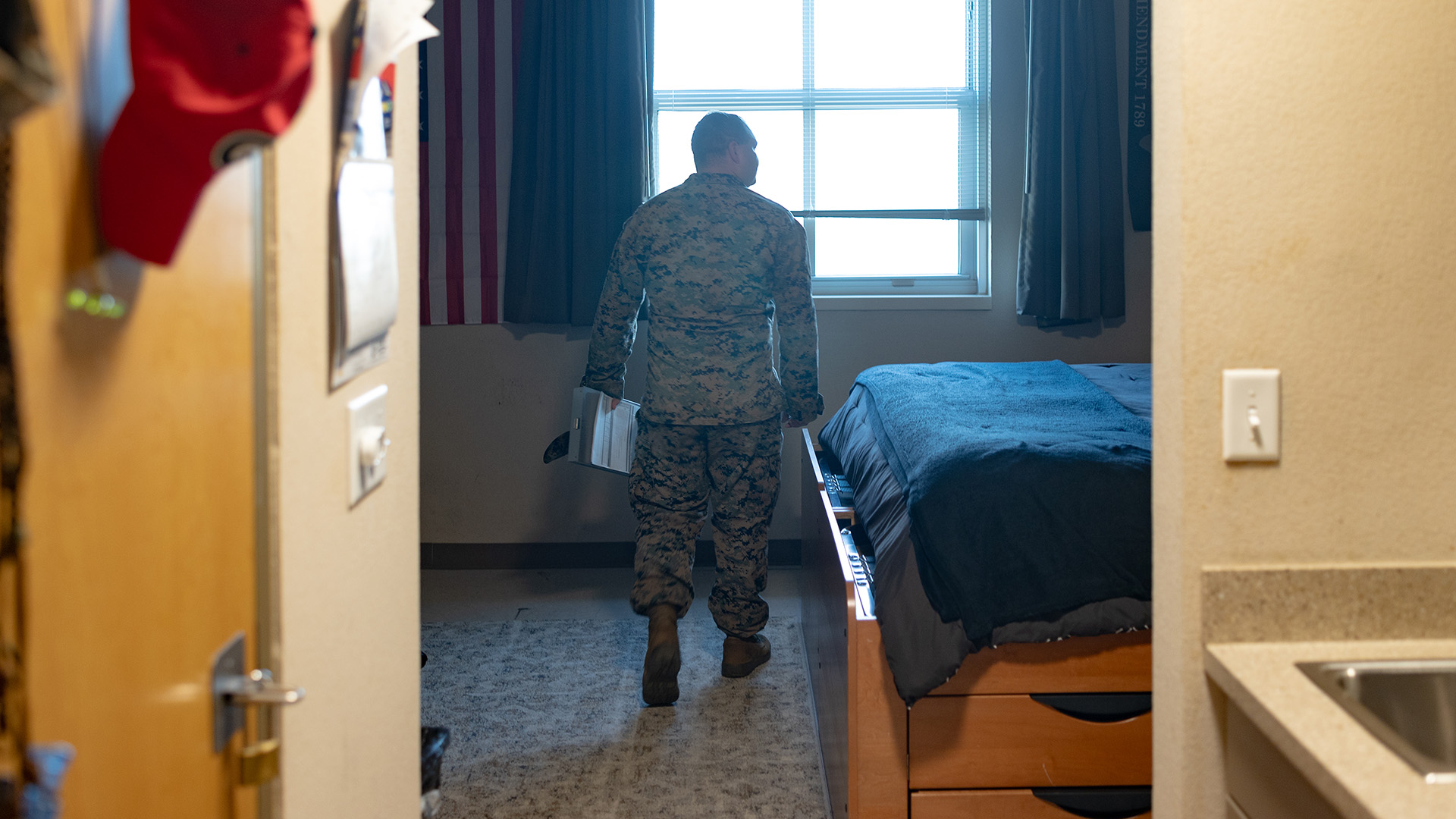
Over the past two years, the Marine Corps has refurbished 11 out of its 109 barracks, improving living conditions for about 4,200 Marines, said Maj. John Parry, spokesman for the deputy commandant for installations and logistics.
These efforts began after a wall-to-wall inspection of all Marine Corps barracks last year that “ensured Marines across the service were living in safe, healthy, and clean conditions,” Parry told Task & Purpose on Thursday.
The inspections were announced after the Government Accountability Office issued a report on poor living conditions for U.S. service members and found that 17,000 Marines were living in substandard barracks. The report identified numerous problems with barracks on 10 military installations, including mold, cockroaches, bed bugs, rodents, and issues with sewage as well as water quality.
“We acknowledge GAO’s report; however, it was only a sampling of our barracks rooms,” Parry said. “We have since inspected 100% of our barracks with a wall-to-wall inspection in early 2024, which provided actionable, comprehensive data and findings.”
In addition to the inspections, the Marine Corps is also implementing Barracks 2030, a plan to refurbish its barracks, Parry said. As part of those efforts, the Marines have spent $20 million on new furnishings for 109 barracks, funded more than 232 building manager positions, and obligated about $723,000 to replace locks, he said.
‘This is going to take time’
With an estimated cost of $5 billion over the next five years, Barracks 2030 is “the most comprehensive and ambitious infrastructure plan in the history of our Corps,” Marine Corps Commandant Gen. Eric Smith said on Thursday.
Eleven major renovation projects are currently underway, and 12 more are planned, if funding comes on time and on budget, Smith said during the annual Modern Day Marine exhibition in Washington, D.C
“But I’m not going to sugarcoat it: Fixing 20 years of deferred maintenance won’t happen overnight,” Smith said. “This is going to take time. We’re going to do it the right way, not the fast way, just like Marines always do.”
One factor that can delay the Marine Corps’ effort to repair barracks is when Congress passes temporary spending bills known as continuing resolutions instead of approving defense budgets, Smith said. In March, Congress passed such a bill for all of fiscal year 2025, which ends on Sept. 30.

When lawmakers pass temporary spending bills, the Marine Corps gets its funding late in the fiscal year “and you can’t spend it all,” Smith said.
“It takes years to lay out a contract for a new barracks and obtain the workers,” Smith said. “In coastal North Carolina, that is a challenge. In southern California, that is a challenge.”
‘No. 1 resourcing and funding priority’
Historically, one of the biggest causes of problems within the barracks has been a lack of funding, said Eric Mason, the unaccompanied housing team lead for Marine Corps Installation Command.
“The barracks have unfortunately been at the bottom of the totem pole, meaning if there was a problem at a hangar or a problem somewhere else, that money would get pulled from the barracks,” Mason said on Wednesday at Modern Day Marine. “Now the commandant has said that barracks is the No. 1 resourcing and funding priority.”
Mason also said that Marines need to be trained on how to maintain their rooms the same way they take care of their weapons and vehicles.
When asked if he believed barracks issues were the result of a discipline problem — as an Army general claimed in 2023 — Mason said “I don’t think it’s what [is] causing it. It does contribute to it.”
Plan to have SNCOs in the barracks hits snag
The Marine Corps launched a pilot program in 2023 in which eight staff noncommissioned officers moved into barracks at Marine Corps Air Station Miramar, California, to serve as “barracks resident coordinators,” based on the Navy’s resident advisors program, to ensure Marines were taking care of their rooms, but Mason said that effort has run into legal challenges.
“It seems that our Marine Corps legal team doesn’t see things the way the Navy sees it, meaning that if we have a senior or staff person that lives in the barracks that are getting [Basic Allowance For Housing], it requires them to have two entitlements, and we couldn’t get behind that,” Mason said. “So, our legal team is still looking at how we do this. So right now, we’re still in the works, still in the process. Once we figure out the legalities of it, we may push it.”
